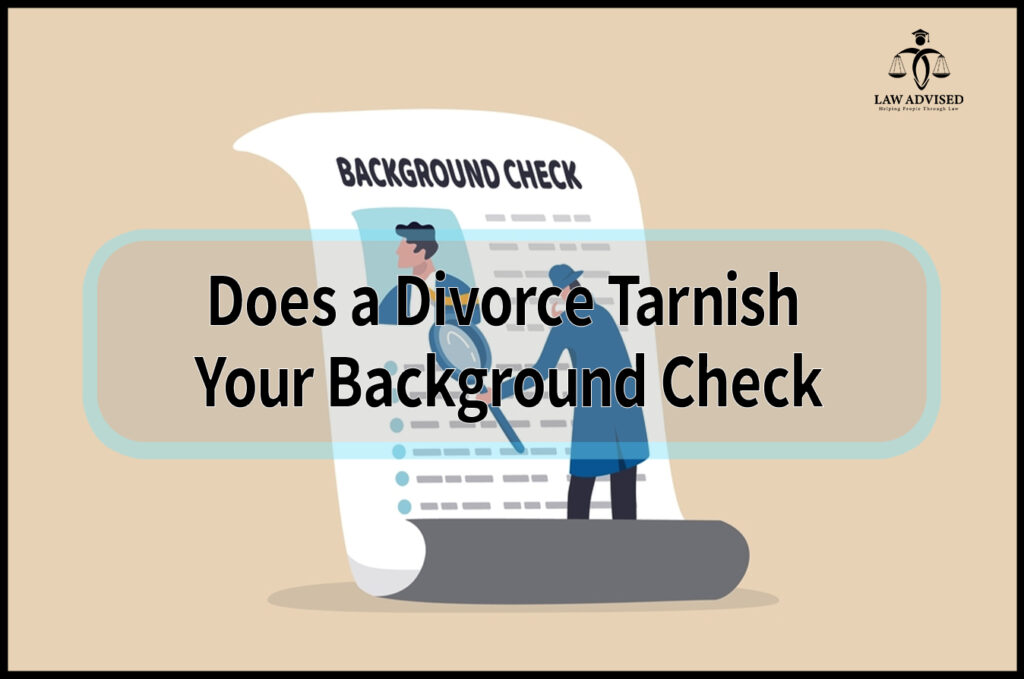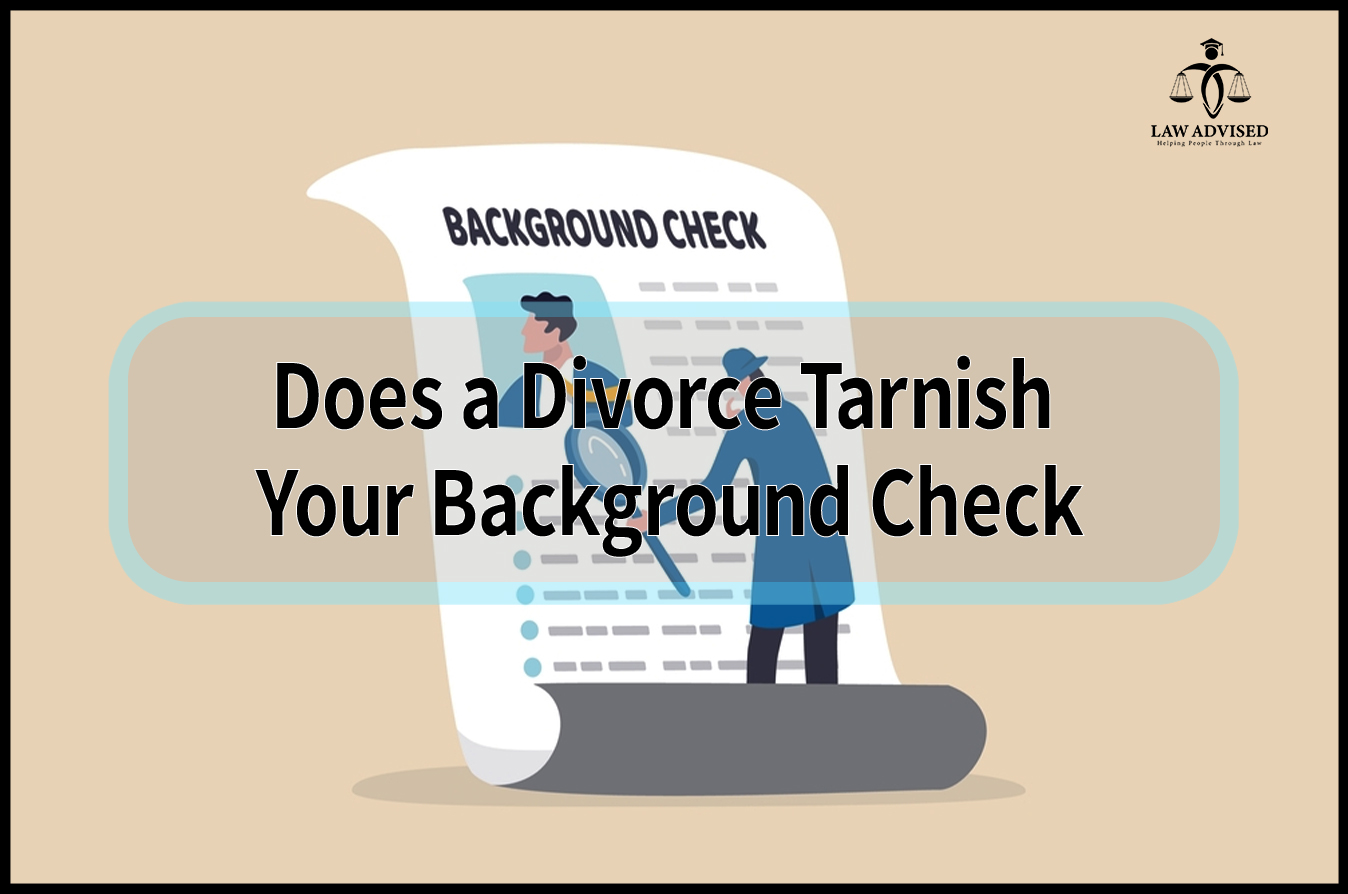Yes, a divorce can show up on a background check. When conducting a background check, divorce records are considered public information and can be accessed through various sources such as county courthouses, online databases, or private investigators.
Understanding The Role Of Divorce In Background Checks
Background checks play a significant role in various contexts, ranging from employment to rental applications. They are conducted to gather information about a person’s history and assess their suitability for a particular position or opportunity. When it comes to divorce, you may wonder if it shows up on a background check.
The consideration of divorce as a factor in background checks can vary depending on the purpose of the check. In employment background checks, divorce typically does not appear unless it is specifically related to the job requirements. However, in cases where financial stability or child custody issues are relevant, divorce records may come into play.
It’s important to note that divorce is a matter of public record, but it is not classified as a criminal offense. Therefore, it may not be included in standard criminal background checks. However, specialized background checks geared towards personal relationships, such as those for dating or child custody, may include information about divorce.
How Divorce May Affect Your Background Check
Divorce can have various implications on a background check and personal records. Firstly, it is important to understand the legal aspects of divorce on personal records. Divorce records are typically considered public records and may be accessible through online databases or courthouse records. These records may include information such as the date of divorce, the names of both parties involved, and any settlement agreements reached.
Furthermore, divorce may have an impact on financial stability. Dividing assets and debts during a divorce can have long-term consequences on individual credit scores and financial standing. It is essential to ensure that all financial obligations are met, and any necessary updates are made to personal records, such as bank accounts and property ownership.
When it comes to completing a background check, certain information related to a divorce may appear, especially if it is a recent event. However, it is important to note that divorce itself may not be a factor that disqualifies an individual from employment or other opportunities. Employers typically focus on factors such as criminal history, qualifications, and references.
In conclusion, a divorce may show up on a background check through public records, but its impact may vary depending on the context. It is essential for individuals going through a divorce to manage their records and seek legal advice to address any potential implications.
Separating Personal History From Professional Abilities
When conducting background checks on potential employees, many employers wonder if a divorce will show up in the results. It’s important to understand that background checks primarily focus on an individual’s criminal records, employment history, and educational qualifications. Divorce itself is a personal matter and does not directly impact a person’s professional abilities or job performance.
Employers should prioritize separating personal history from professional abilities when evaluating candidates for a role. Past relationships alone do not provide insight into an individual’s skills, qualifications, or ethics within a work setting. It is essential to focus on an applicant’s relevant experience, job-related competencies, and references to make informed hiring decisions.
While personal experiences may shape someone’s character, it is crucial to consider that everyone’s circumstances are unique. Evaluating employees based on their past relationships can lead to unfair judgment and biases. Employers should focus on assessing an applicant’s aptitude for the desired role and emphasize their qualifications and professional achievements.
Addressing Concerns And Overcoming Stigma
Divorce is a personal matter that can have implications in various aspects of one’s life, including background checks. While a divorce itself does not typically show up on a background check, there may be concerns and stigma associated with it. Here are some ways to address these concerns and overcome the stigma:
- Be proactive: If you anticipate that a divorce may come up during a background check, consider addressing it during the interview or application process. Highlight any positive aspects or personal growth that resulted from the experience.
- Focus on relevant qualifications: Emphasize your skills, experience, and achievements rather than dwelling on the divorce. Show the employer how you are a valuable asset to their organization.
- Highlight stability: Demonstrate that despite the divorce, you have maintained stability in your personal and professional life. Showcase your commitment, reliability, and ability to adapt to change.
- Obtain positive references: Secure references from previous employers or colleagues who can vouch for your character and work ethic. Their endorsements can help counter any negative assumptions.
- Own your narrative: Take control of your story and how you present it. Frame the divorce as a life experience that has contributed to personal growth and resilience.
- Stay confident: Remember that divorce does not define your abilities or qualifications. Stay confident during the hiring process and believe in your own worth.
Presenting Your Divorce In A Positive Light
When it comes to background checks, many individuals wonder if their divorce will be revealed. The good news is that typically, a divorce will not show up on a standard background check report. Background checks are typically performed by potential employers or landlords to assess an individual’s character and reliability. However, it is important to note that certain aspects related to a divorce, such as legal proceedings or public records, may be accessible through other means.
Showcasing personal growth and resiliency post-divorce
If you have experienced a divorce and are concerned about how it may be perceived on a background check, it can be helpful to showcase your personal growth and resiliency. Highlight the valuable lessons learned from the experience and the positive changes you have made in your life. Emphasize your ability to navigate difficult situations, adapt, and grow as a result of the divorce. This can demonstrate to employers or landlords that you have the strength and maturity to handle challenges effectively.
In conclusion, although a divorce itself may not appear on a standard background check, it is important to be aware of other relevant public records that may be accessible. However, by showcasing personal growth and resiliency, you can present your divorce in a positive light and emphasize the valuable life lessons you have gained from the experience.
Strategies For Navigating Background Checks After Divorce
Divorce can have far-reaching effects on various aspects of your life, including background checks. It is natural to wonder whether a divorce will show up on a background check and what impact it may have. While there is no direct indication of divorce on traditional background checks, certain proactive steps can positively influence the outcomes:
Utilizing References And Recommendations
One effective strategy to offset any potential negative perceptions is to have strong references and recommendations. Former colleagues, supervisors, or professional acquaintances who can vouch for your character and work ethic can help counterbalance any unfavorable feelings that may arise due to a divorce. Secure their permission and include their contact information in your resume or application.
Exploring Proactive Steps
Besides references, you can take proactive measures to demonstrate your stability and resilience despite a divorce:
| Action | Description |
|---|---|
| Continuing Education | Enrolling in courses or workshops to enhance your skills and knowledge shows a commitment to personal growth and professional development. |
| Volunteer Work | Engaging in volunteer activities not only contributes to society but also highlights your dedication to making a positive impact in your community. |
| Professional Networks | Participating in professional organizations and networking events can help you build connections and demonstrate your involvement in your chosen field. |
By pursuing these strategies, you can influence background check outcomes and present yourself as a strong candidate, regardless of any previous divorce.
Frequently Asked Questions On Does A Divorce Show Up On A Background Check

Can A Divorce Show Up On A Background Check?
Yes, a divorce typically does not show up on a background check. Background checks focus on criminal records, not marital status.
Will My Employer Find Out About My Divorce?
Usually, your employer will not find out about your divorce unless you disclose it. Divorce proceedings are confidential matters.
Can A Potential Employer Ask About My Divorce?
No, employers cannot ask about your marital status, including divorce, during the hiring process. It is illegal and violates the Equal Employment Opportunity Commission (EEOC) guidelines.
Can A Background Check Reveal My Relationship History?
Background checks primarily focus on criminal records, employment history, and education. Relationship history, including divorce, is not generally included in these checks.
Can My Ex-spouse Access My Divorce Information?
Divorce records are typically public unless sealed by a court. Your ex-spouse can normally access the information by requesting it from the appropriate authorities.
Can A Background Check Show Child Custody Disputes?
Background checks usually do not include child custody disputes. These matters are typically handled in separate family court proceedings.
Will A Divorce Affect My Employment Opportunities?
In general, a divorce will not directly affect your employment opportunities. Employers typically focus on qualifications, experience, and skills when making hiring decisions.
How Long Do Divorce Records Stay On File?
Divorce records are typically kept on file indefinitely. However, the availability and accessibility of these records may vary depending on the jurisdiction.
Conclusion
A divorce is not typically included in a standard background check, as it is considered private and personal information. Background checks mainly focus on criminal records, employment history, and financial stability. However, it’s important to note that specific circumstances and legal proceedings may require disclosure of divorce details.
It’s always recommended to consult with a legal professional or background check provider for accurate and up-to-date information.
Ismail Hossain is the founder of Law Advised. He is an Divorce, Separation, marriage lawyer. Follow him.





Leave a Reply